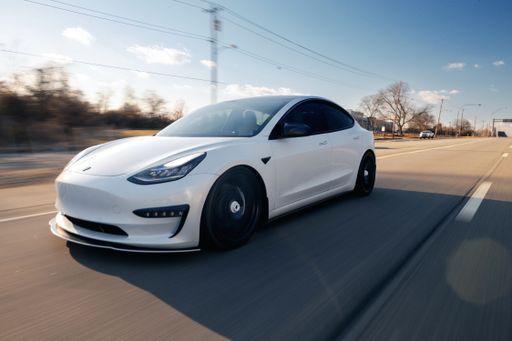Tesla Vehicle Sales Up 38%, but BYD Emerges As New EV Leader
Tesla's vehicle sales have increased by 38% in the fourth quarter, but BYD, a Chinese automaker, has surpassed them in EV sales.

BYD Overtakes Tesla in EV Sales
The final quarter of 2023 marked a significant milestone as BYD, a Chinese automaker, surged ahead of Tesla in EV sales. BYD sold an impressive 526,409 fully electric cars, eclipsing Tesla's delivery of 484,507 vehicles. We saw this coming after the third quarter, and if projections hold, Tesla will not be regaining the EV crown anytime soon.
Tesla's Impressive Fourth Quarter Performance
Tesla’s fourth quarter was impressive; deliveries were up 38% year over year, and production was up 35% year over year. Plus, the company sold more Model S and Model X than it has during any quarter in the past five years. However, for a company that has projected 50% year-over-year growth and has been the unquestioned king of the EV sector, this performance falls a little flat, and it’s allowed one of the bigger threats to catch up.
BYD's Extraordinary Performance in Q4
BYD's performance in the fourth quarter was nothing short of extraordinary, with a record sale of 942,651 vehicles. This figure included a 55% share of Battery Electric Vehicles (BEV) and 45% of Plugin Hybrid Electric Vehicles (PHEV). Notably, BYD transitioned away from Internal Combustion Engine (ICE) vehicles in April 2022, focusing entirely on electric and hybrid models.
The Competition between BYD and Tesla
The origins of BYD trace back to its foundation as a battery company, later expanding into automobile manufacturing in the mid-2000s. With the backing of notable investor Warren Buffet, BYD has often been paralleled with Tesla; however, the two companies differ significantly in their product offerings and business strategies. Tesla adopts an online direct sales model, whereas BYD leverages a vast dealer network for both its international expansion and dominance in its domestic market. BYD has demonstrated a commitment to nurturing its dealership network, a model often perceived as outdated.
The competition between BYD and Tesla is set to intensify in 2024. BYD is venturing into areas previously dominated by Tesla, such as self-developed autonomous driving systems and a direct sales model. This shift is evident in establishing two new EV brands, YangWang, and Fang Cheng Bao, which adopt direct sales strategies and expand their own sales networks. Fang Cheng Bao launched 154 showrooms and direct-operated stores in 84 cities in 2023, while YangWang aimed to open 90 stores in 40 cities by the year's end.
Conventional Cars in Demand
In contrast to Tesla's focus on advanced autonomous driving capabilities and high-tech interiors, BYD's vehicles feature more traditional interiors, emphasizing physical buttons and conventional design. The company's research and development primarily centers on battery technology, striving to offer high-quality vehicles at reasonable prices.
BYD's approach to business is characterized by vertical integration. The company, led by founder and CEO Wang Chuanfu, controls the entire production chain, from lithium mining to battery manufacturing, vehicle assembly, shipping logistics, and even car insurance. This strategy mirrors Tesla's approach to some extent, with both companies prioritizing cost efficiency and affordability.
BYD Poised to Lead in 2024
For the year 2023, BYD's total electric vehicle sales soared to 3,023,679, a 62% increase from the previous year. Of these, 1,574,804 were BEVs. Conversely, Tesla delivered 1,808,581 vehicles in 2023, marking a 38% increase from 1,313,851 in 2022.
Despite BYD's impressive annual performance, Tesla maintained its lead in cumulative sales for the year. However, projections suggest BYD is poised to continue as the leading EV manufacturer in 2024.

